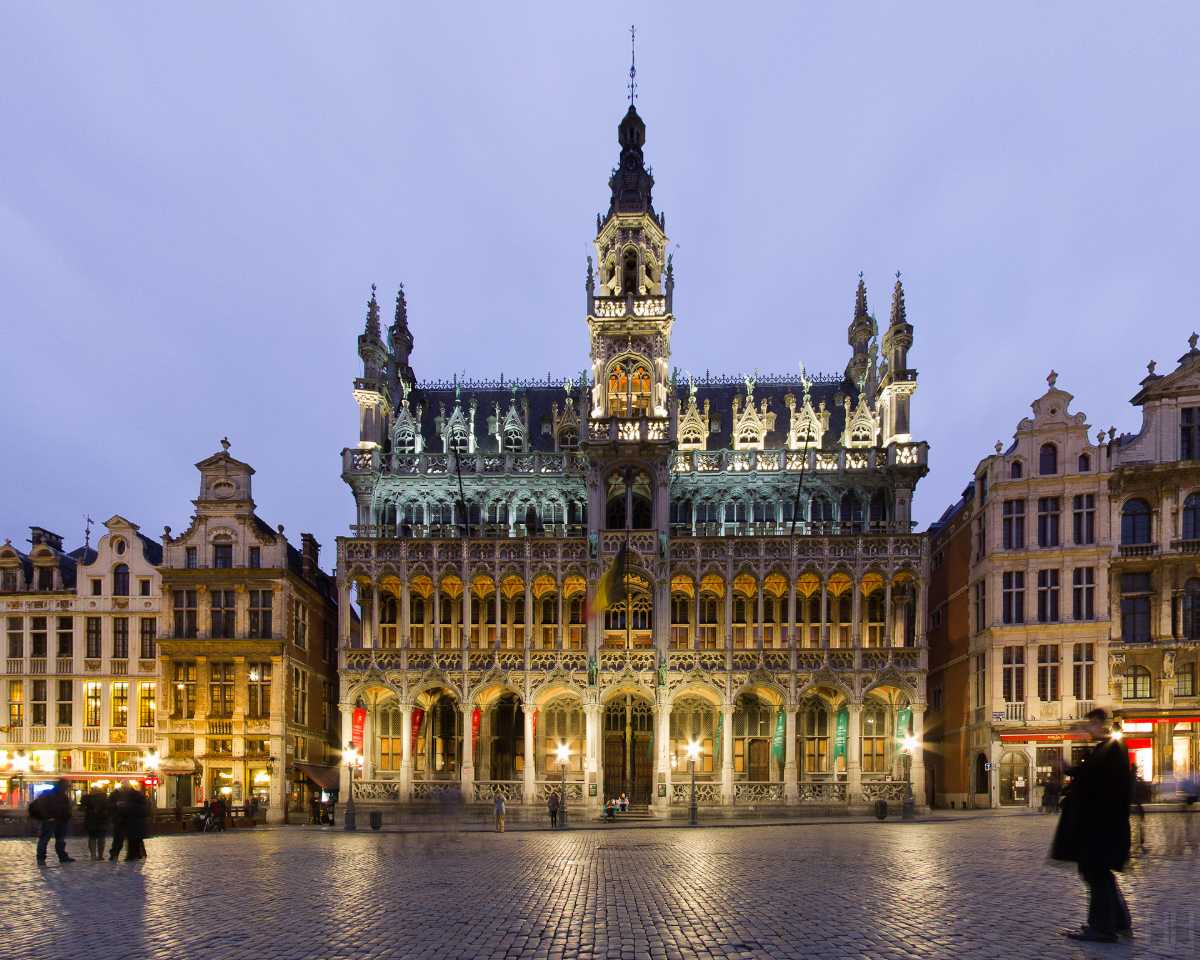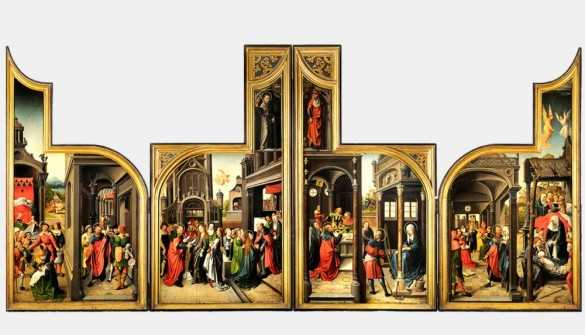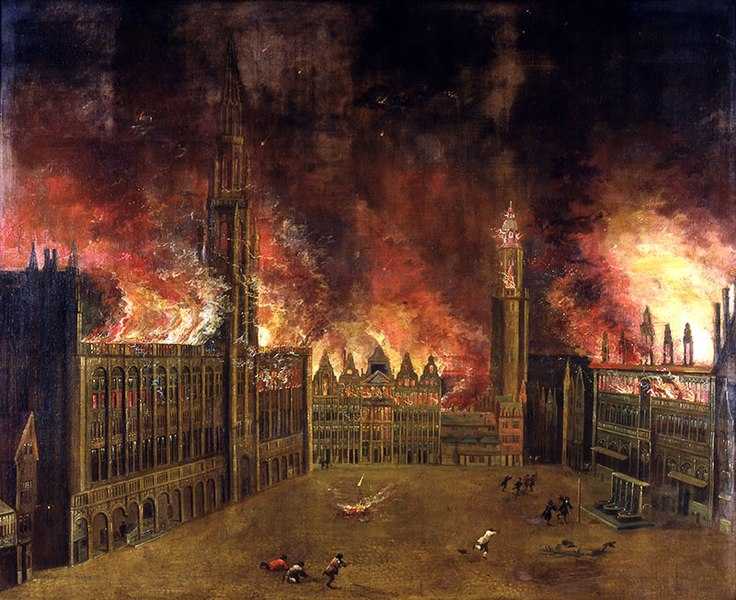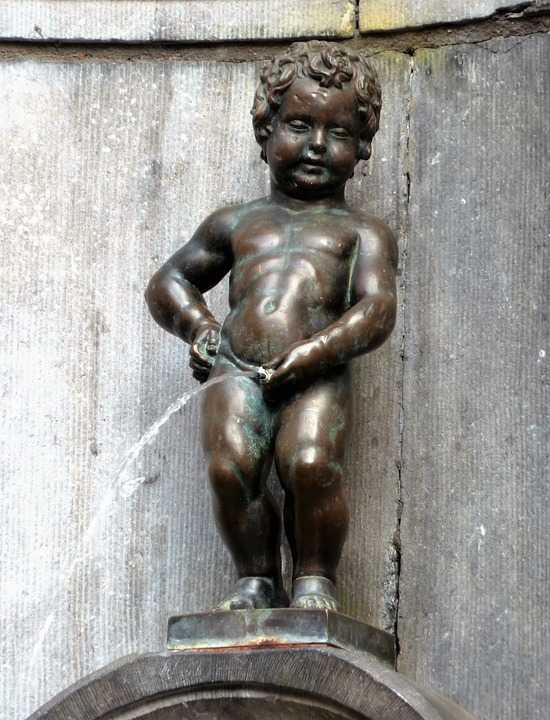Brussels City Museum
Tags : Museum
Timings : Tuesday to Sunday: 10:00 AM - 5:00 PM; Closed on Mondays
Visit on the first Sunday of the month for free admission
Time Required : 1-2 hours
Entry Fee : Adult: EUR 10.00
65+: EUR 6
Student, job seeker: EUR 4.00
Free of Cost for those below 18 years and on the first Sunday of every month.
the Musée de la Ville de Bruxelles
Ways to Experience this attraction
Brussels City Museum, Brussels Overview
The Brussels City Museum, located in the Maison du Roi (King's House) on the Grand Place, is home to an extensive collection of exhibits, including tapestries, ceramics, sculptures, and maps that detail Brussels' urban development. A declared UNESCO World Heritage site, it is most popular for showcasing the original statue of Manneken-Pis and its 600+ costumes. Also, for EUR 2 extra, you can access the balcony for a panoramic view of the Grand Place, particularly during special events like the Flower Carpet display.
The outfits of the Manneken Pis statue, donated by countries and designers worldwide, provide a unique glimpse into global traditions and humor. Housed opposite the City’s Town Hall, the City Museum was inaugurated in 1887 on its second floor. Originally built in 1536, the building has undergone numerous restorations and now stands as one of the most beautiful structures on the Grand Place.
Read More on Brussels City Museum
History of City Museum, Brussels
The building was destroyed many times over the years due to the Wars of Religion. Only in 1868 was the Maison du Roi reconstructed in the neo-Gothic style it has today. In 1887, the City museum was inaugurated on the second floor of the building.
The Five Masterpieces at City Museum, Brussels
1. Maison du Roi

The building housing the City museum is itself a piece of art. La Maison du Roi is one of the most accomplished examples of the “neo” styles that were cultivated during the 19th century. It resonates with all the other buildings on the Grand Place. It is the final element of this highly original urban scenography. The rhythm of its bays mirrors those of the Baroque houses next door to it; its tower imposes itself as an elegant and feminine twin to the Town Hall.
2. Saluzzo Masterpiece

A result of cross-collaboration between many artists and artisans, the Saluzzo combines various techniques, including carpentry, painting, sculpture, moulded elements, polychromy, gilding, polished silver, stamping, to form a harmonious whole. The different aspects of altarpieces correspond to an initiatory path which focuses on the Holy family while leading us into the mystery of the birth of Christ and the encounter with the divine.
3. The Wedding Cortège
_-_The_Wedding_Procession_(Petit_Palais)_20190713105423.jpg)
Dating back to the 1600s from the region of Pajottenland, the Wedding Cortege is an intricately created masterpiece. The subject and its anecdotal implementation immediately invite the spectator to make comparisons between customs in the 16th century and those of the present-day, between those in Brabant and those in other regions. A search for differences and similarities. Of the fifteen different versions of the Wedding Cortege that exist around the world experts agree that the one conserved at the Museum of the City of Brussels is, without a doubt, the best version that exists.
4. The Bombardment of the Grand-Place in 1695

The only painting to show the monuments and houses of the famous square in flames during the bombing of Brussels in 1695 by the troops of Louis XIV, King of France, this anonymous piece is an extremely accomplished work of its genre. This canvas stands out thanks to the splendour of its colours and the implementation and texture of the flames, which appear to leap out of the painting and envelopes each visitor who approaches it. The scene is furthermore enhanced by the particularly alarming night time atmosphere.
5. Manneken-Pis

While the humorous statue of Manneken-Pis is not one that would directly quality as a masterpiece, its elements and candid depiction of the Belgian state of mind are what make it such a popular attraction. Manneken-Pis personifies the city. When it is under threat, such as during the bombing of 1695, it speaks on behalf of the inhabitants of Brussels to denounce the attacker. It symbolises the spirit of the city’s resistance during the World Wars. At less dramatic times, its image was used to poke fun at the authorities gently. The inhabitants of Brussels identify themselves with this mischievous young boy, who shows no sign of pretension and appears to enjoy life.
Virtual Reality Tour of City Museum, Brussels
Ticket price: EUR 2
Rules for Visiting City Museum, Brussels
- Unaccompanied children under the age of 14 are not permitted into the museum
- Animals, other than guide dogs, and irrespective of size, are not permitted
- Any person clearly under the influence of alcohol or drugs may be refused admission
- Objects that might cause damage to the works of art and/or the interior of the museum are not permitted
- The museum reserves the right to inspect visitors’ bags, school bags and briefcases pursuant to Belgian laws
- Eating, drinking and/or smoking inside the museum is prohibited
- The use of mobile phones and photography is not allowed inside the premises
- Visitors are also not allowed to touch or tamper with any of the works displayed
How To Reach City Museum, Brussels
Tram: Lines 31, 32, and 33 stop at Bourse.
Bus: Lines 38, 65, 71, and 86 stop at Gare Centrale, and lines 48 and 95 stop at Bourse.
On Foot: The museum is a short walk from many nearby attractions like the Galeries Royales Saint-Hubert and Manneken Pis.
